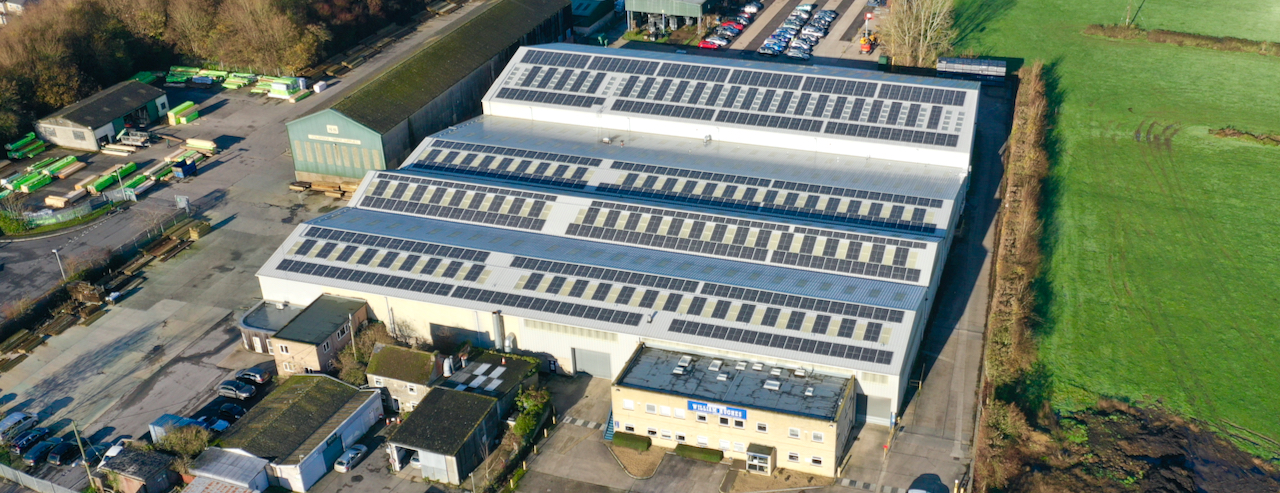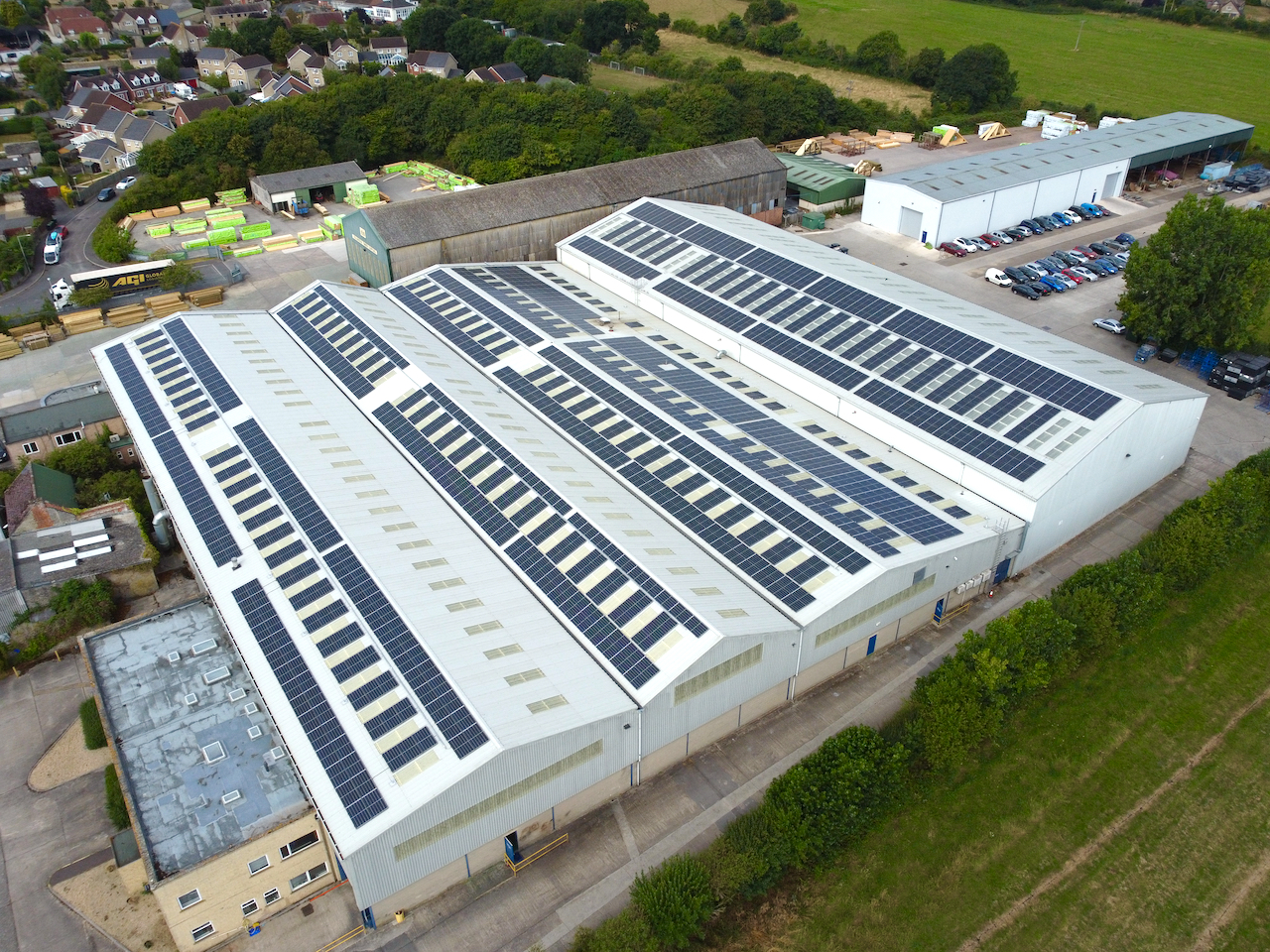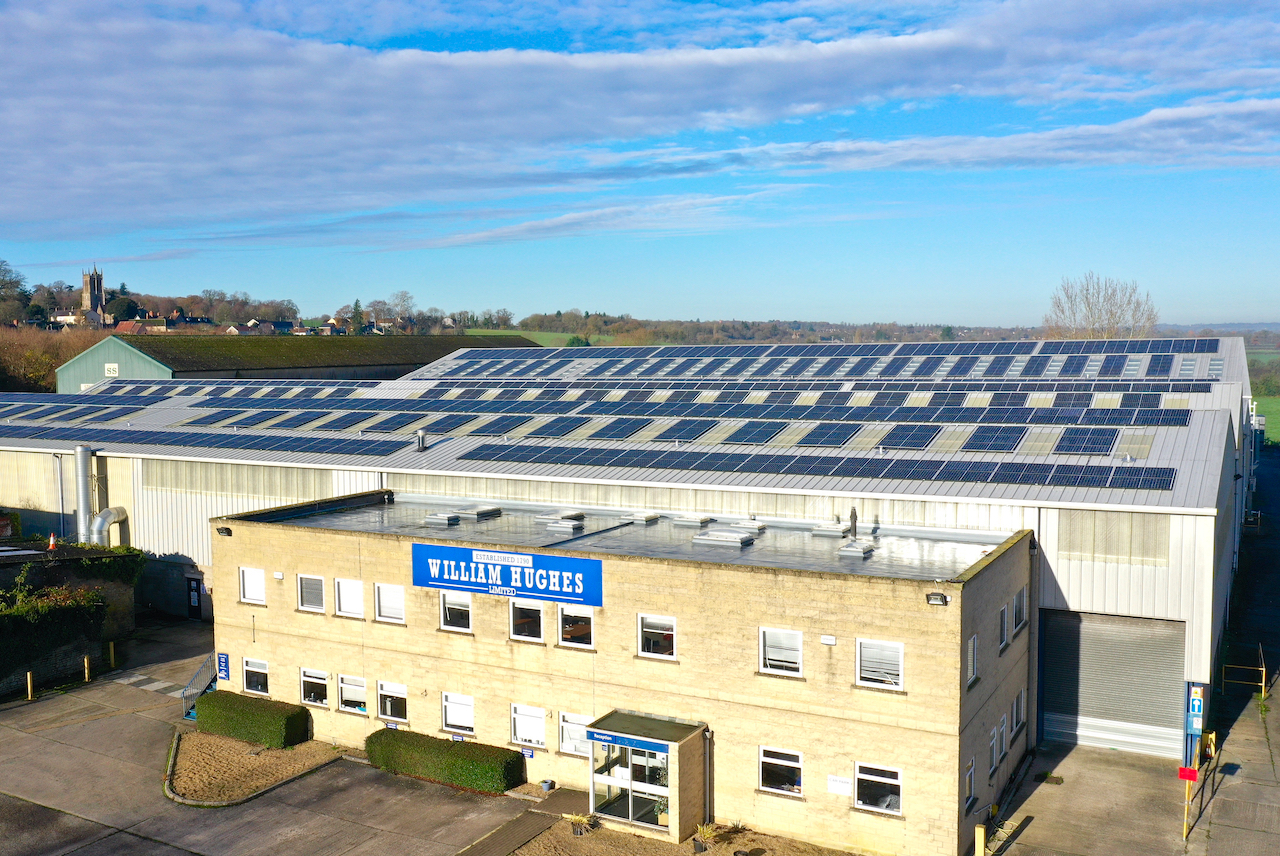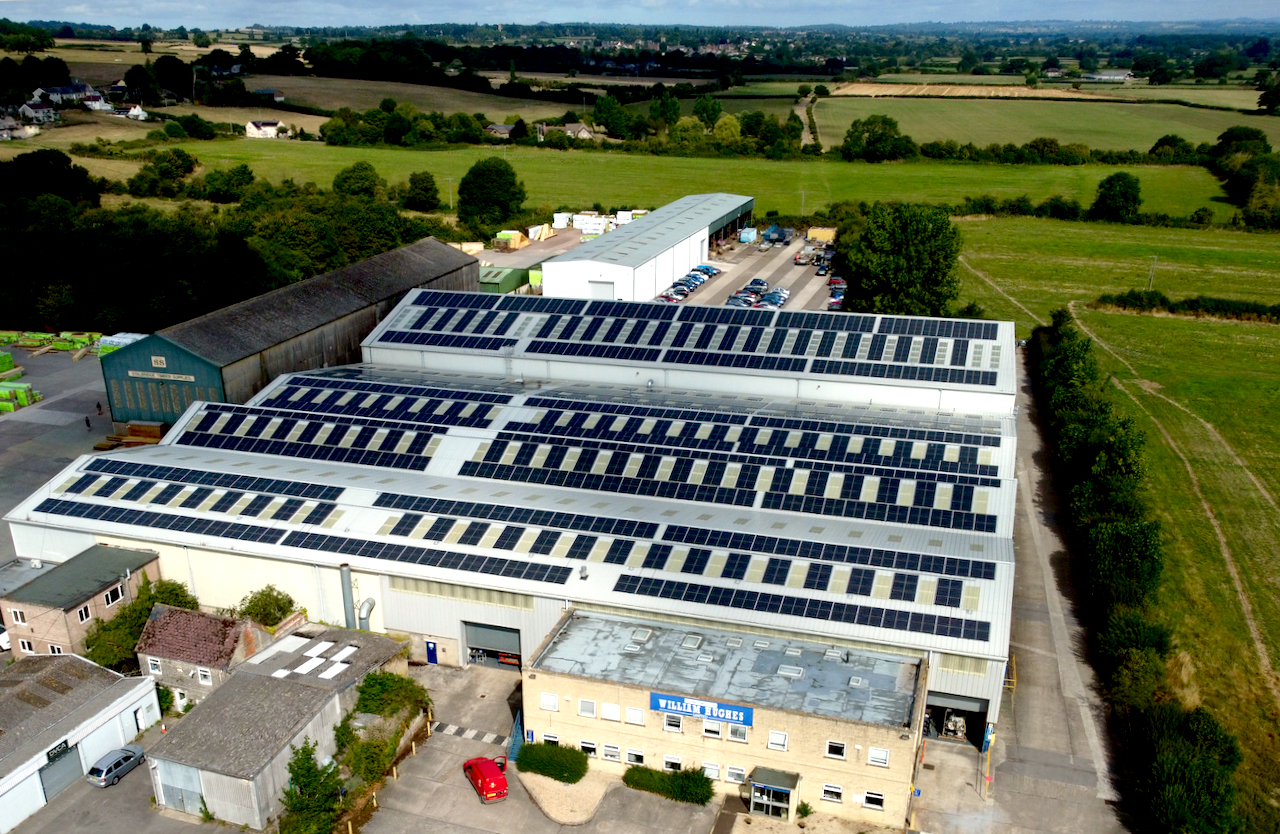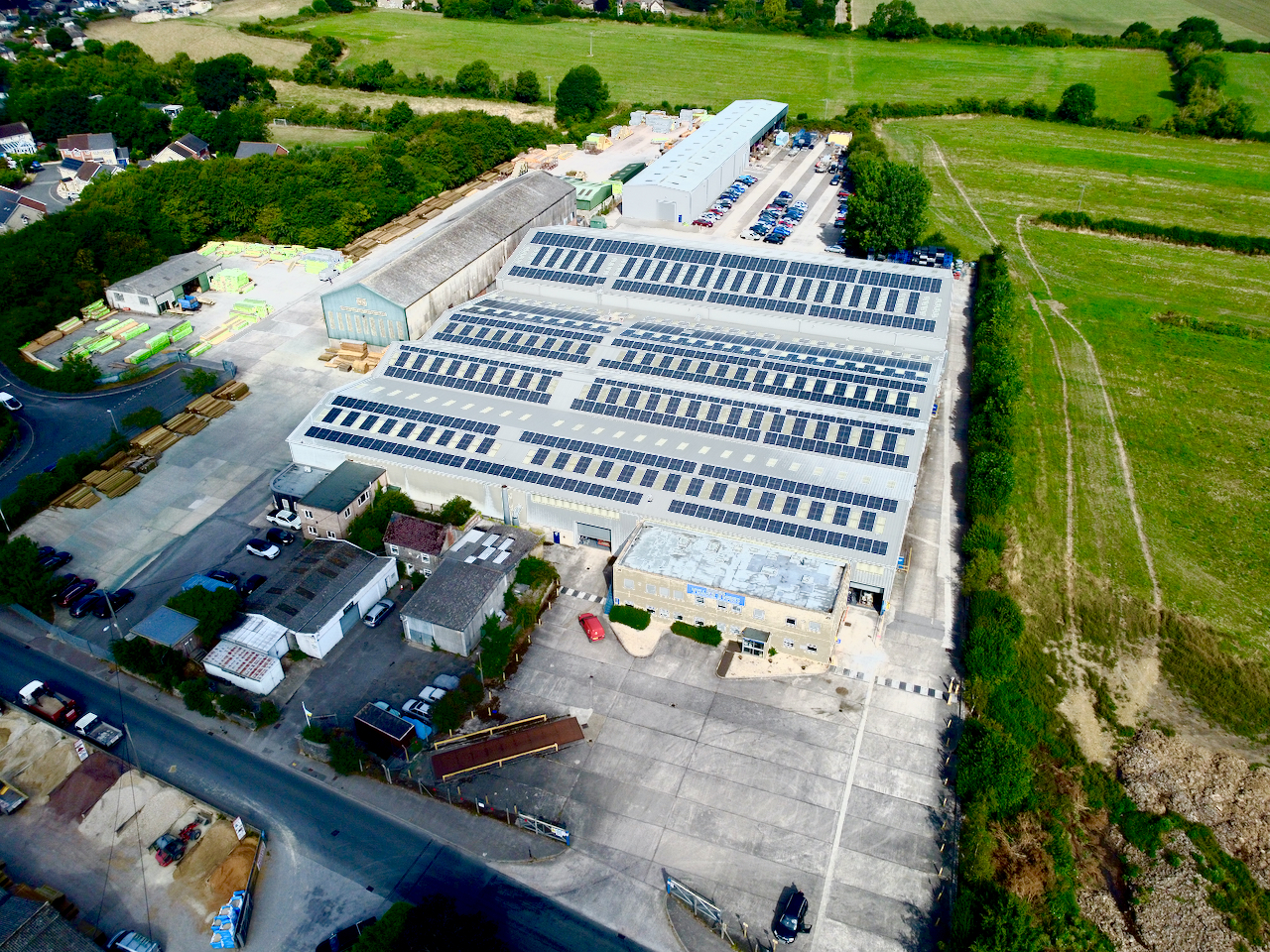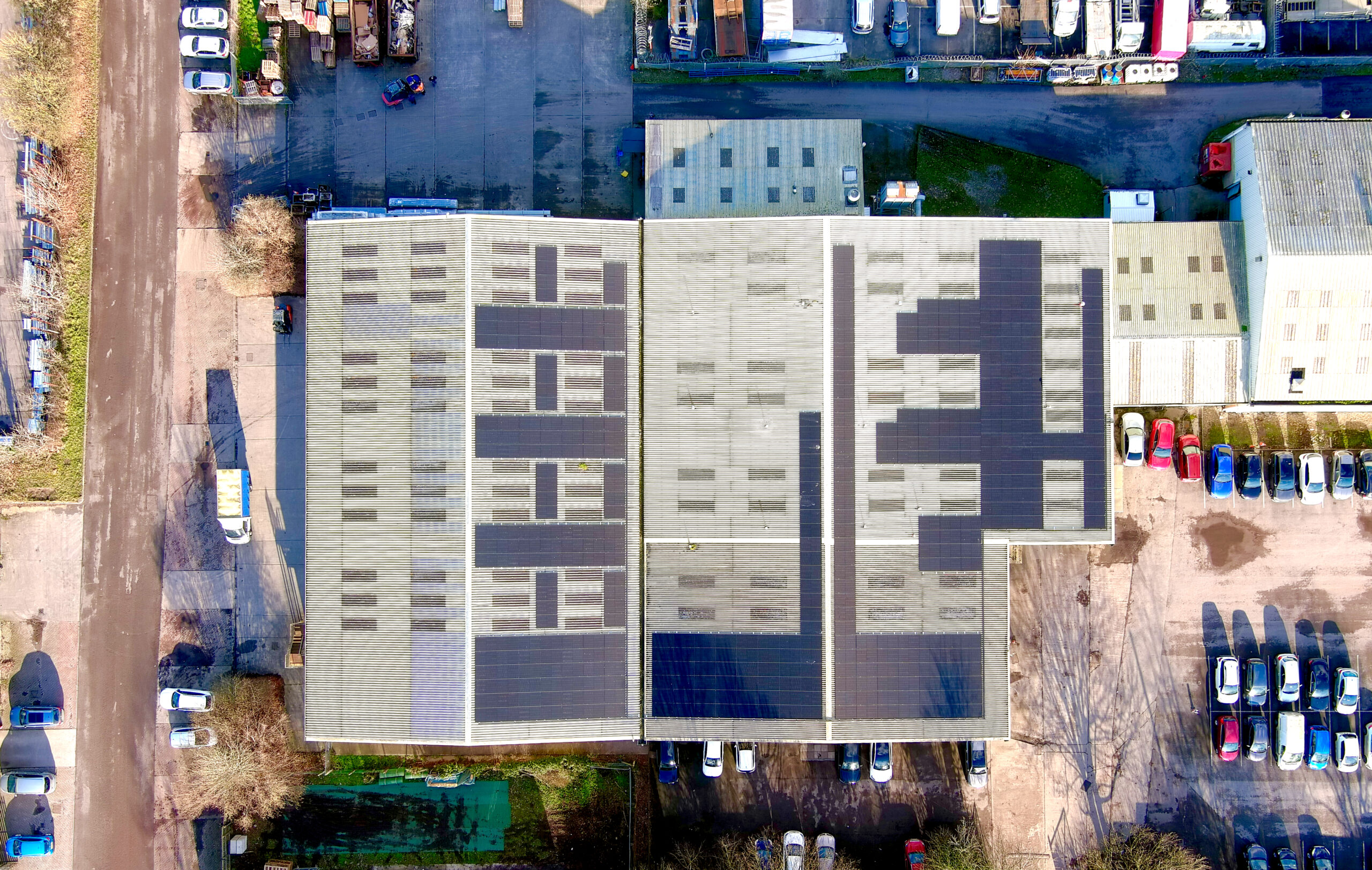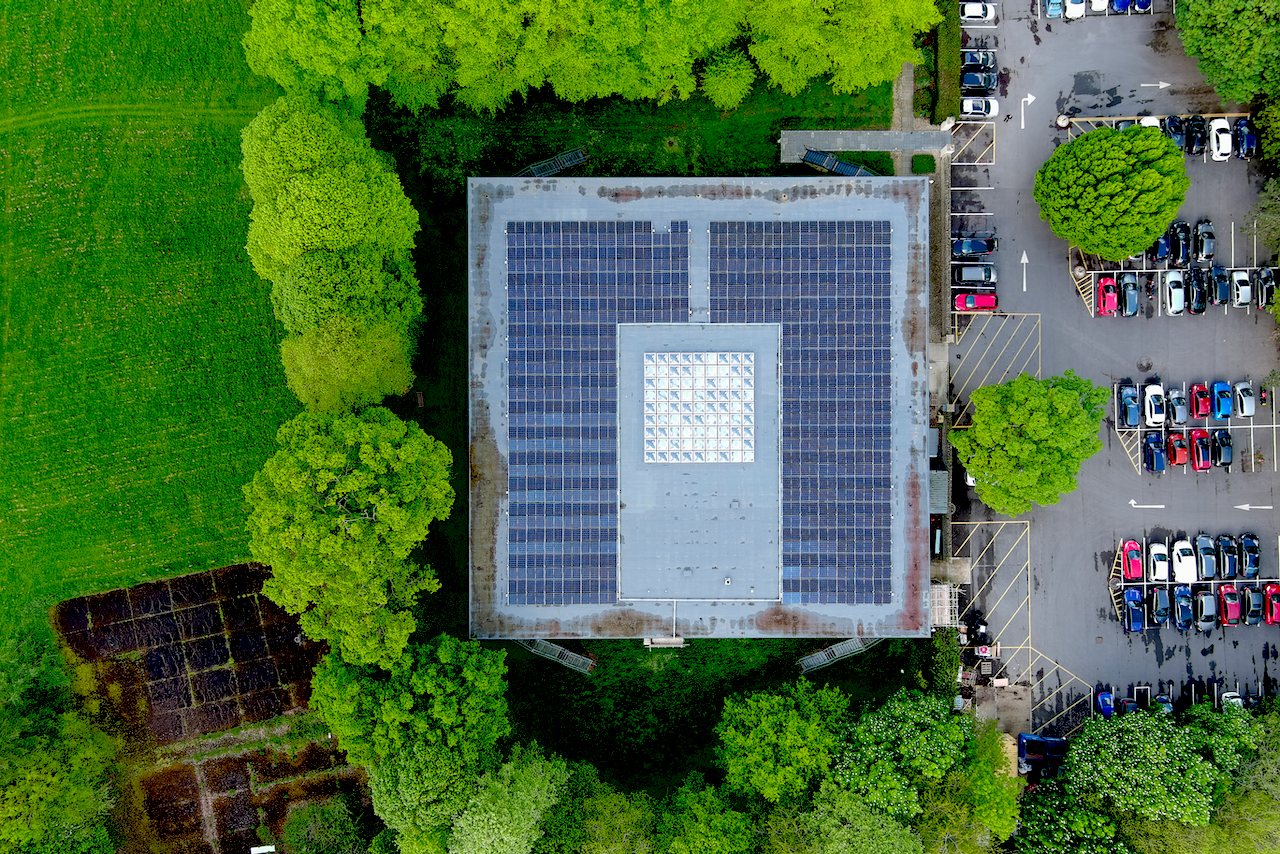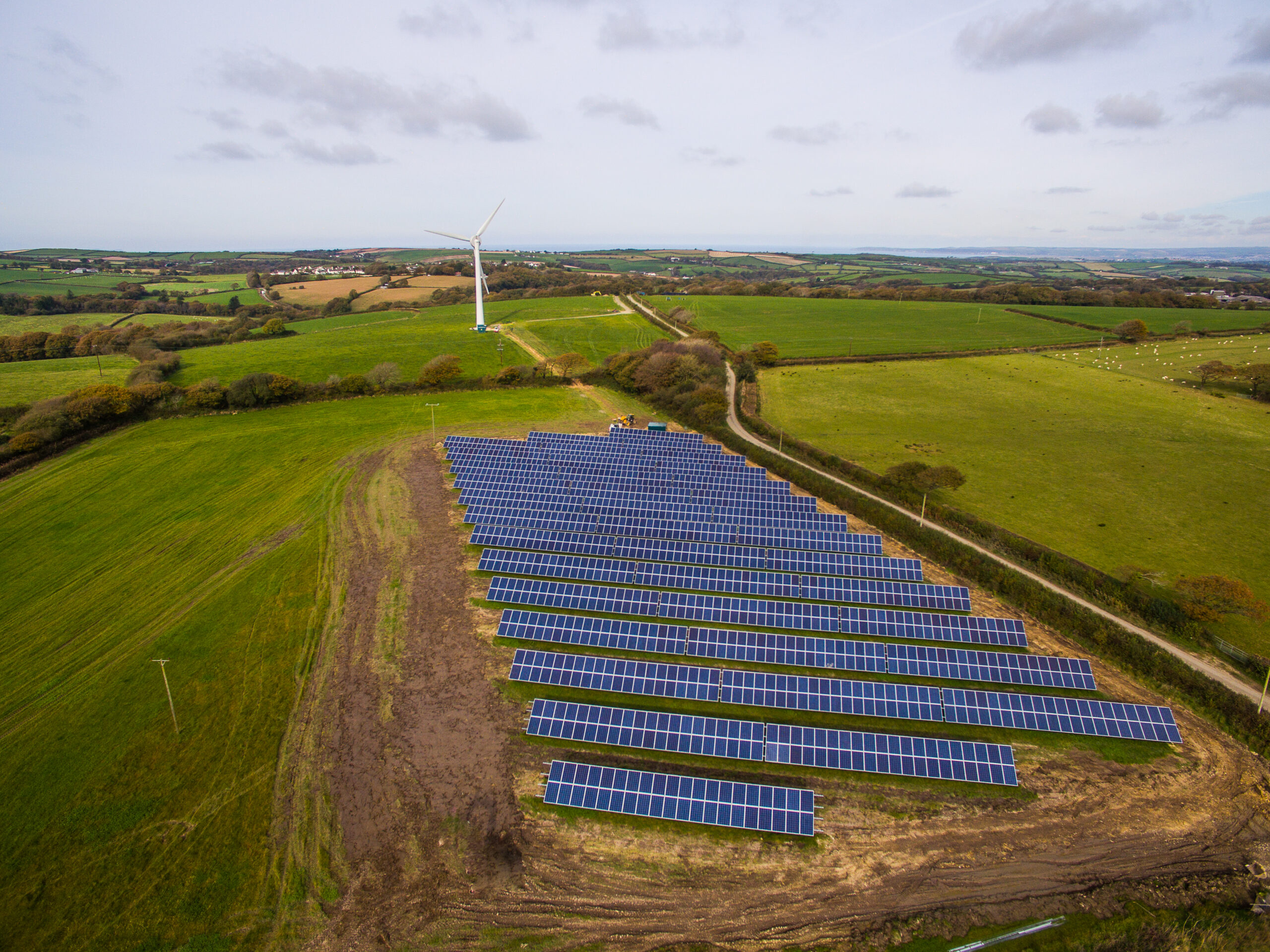In 2020, our first installation for William Hughes Group in Stalbridge was officially commissioned with a 400 kW capacity – and with 40% of its capital cost funded by Low Carbon Dorset.
The £100,000 grant for this £250,000 project brought the payback period and the unit price of electricity down dramatically, and made the economic argument for self-generation compelling.
We worked closely with both parties to find the best solution in terms of environmental and economic return, and to ensure the whole process, from paperwork to panel-fitting, went smoothly.
Building on success
In its first year of operation the system outperformed its targets by more than 15%. This success spurred on William Hughes Ltd to add a further 140 kW in 2022, then another 180 kW in 2024, again made possible by £50k of funding from Low Carbon Dorset.
This brings the total generation of their solar PV up to 630,000 kWh annually, and takes William Hughes to an annual carbon saving of over 140 tonnes, which will total 3,500 tonnes in the systems’ combined lifetime.
With their two extensions, the solar panels provide a third of the electricity used at the Stalbridge site, where William Hughes design and manufacture custom-made springs, wire forms and assemblies for the automotive and aerospace industries.
Dorset’s largest
The initial 400 kW project in 2020 was one of the largest renewable energy installations in the county – even before it was extended – and was the largest single-site array to be funded by Low Carbon Dorset.
We have completed several projects supported through Low Carbon Dorset funding, including the Portland-based Print Team and Groveley Precision Engineering in Christchurch.
Other counties also available
The Low Carbon Dorset programme has funded projects to date that have reduced carbon emissions across the county by 24,762 tonnes across 710 organisations.
We also have experience with similar schemes that are in operation in across the south of England. Gloucestershire, Herefordshire, Shropshire and Worcestershire have all run programmes of similar structure and intent, with grants available from 30% to 50% of the capital cost and up to £100,000 in value.


